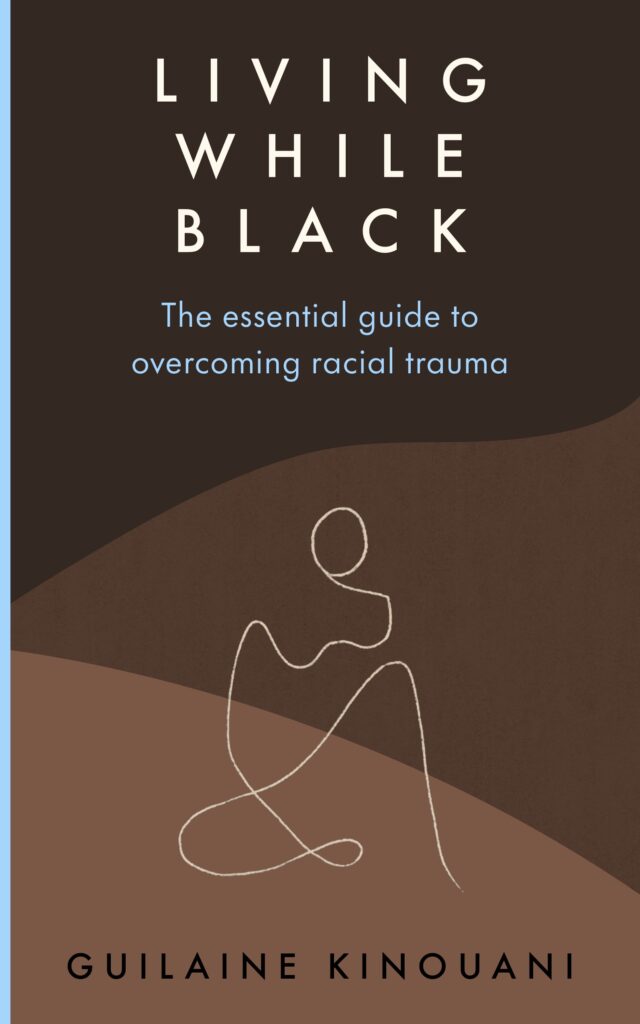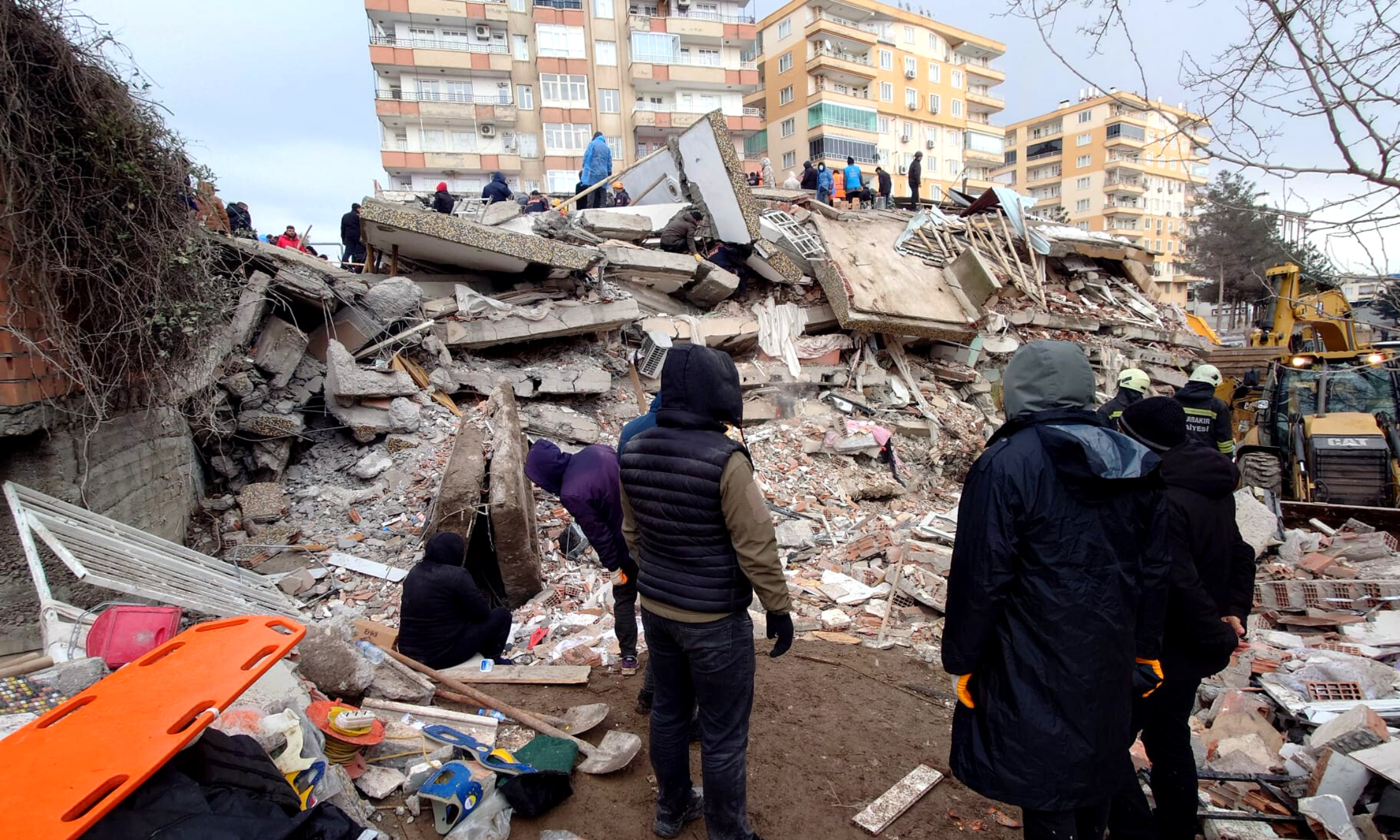
photography courtesy of Guilaine Kinouani
I have been an admirer of psychologist, therapist and researcher Guilaine Kinouani’s work for a number of years now, and so it was an honour to sit down with her on a sunny Thursday morning to discuss her debut book Living While Black: The Essential Guide to Overcoming Racial Trauma. Guilaine is the London-based founder of Race Reflections, an organisation committed to disrupting the ‘Diversity and Inclusion’ sector by rethinking inequality structurally and radically.
For years her work has been able to speak to people just like me – Black women and Black non-binary people in search of a language that allows us to process, understand, express and then release the harms we are subjected to at the hands of a racist and imperialist society.
Living While Black ruptures and breaks the silences around these harms and is the offering of a cathartic release to speak the pain many of us may have been told is unspeakable. The book explores several aspects of trauma that Black people experience living in the Western world. Guilaine dives into topics that touch on the diverse aspects of Black life, like Black love, Black shame, raising Black children and Black resistance. At the end of each chapter, a self-care toolkit is offered to help the reader engage with the difficult aspects that may touch areas of their own life.
Guilaine has graced a number of stages like TEDxUCLWomen in 2017 where she explored some of the concepts found in the book like ‘epistemic homelessness’ which she describes as “feeling like a stranger in a familiar land with no anchor and no support”. I was lucky enough to attend the event live and this was, for me, my first real insight into the beautiful and radical mind of Guilaine Kinouani. So, for this interview, we sat down to talk about racial trauma, navigating institutions and spaces that persistently re-traumatise us, and how this all fits into the wider context of Black liberation.
“I am not going to debate my humanity with you, I refuse to do so”
Guilaine Kinouani
“The book came about because of my experience in academia, my experience in clinical practice and in community work,” Guilaine says. “And feeling quite frustrated at the lack of attention to the impact of anti-blackness on our mental health, and our psychological health primarily.” I felt the frustration as I turned the pages – the frustration that we are still experiencing the pain of whiteness, and that we live in a world that continues to act as if it does not exist.
One of the themes Living While Black brought to the surface was institutional gaslighting – the consistent denial of our lived experiences like racism by the institutions that impact our lives. I would even describe this book as a direct response to that institutional gaslighting. This denial is able to function in the ways that it does because we are often not able to fully express our experiences and find people that can affirm us, so we may be left feeling as though we are the problem.
In the same way, one of the greatest functions of racism is that the definition of ‘racism’ itself is continually in a state of flux under white supremacy. The goalpost is continually being moved and we are being told that our experiences are simply not racist when we know they are. In light of this, we reflected on the impact the book has had on Black communities.
Guilaine expressed how moved she had been by some early responses to Living While Black and her community book launch. “It was extremely emotional… sometimes we just look at each other and you can see the tears in our eyes, someone [spoke] about the shock of being seen.” A shock because too often we are made to believe that our pain and our experiences are unique, and do not warrant acknowledgement and care. This book challenges that very notion.
“It’s important that we learn where it is safe for us to speak because there are people who get gratification from Black pain”
Guilaine Kinouani
At the beginning of Living While Black, Guilaine states her awareness that this book may be a difficult read for some as it unearths the pain and truth of racial trauma. She encourages that at some points we may need to take a break from it. If you are not at the stage in your journey where reading the experiences of others would benefit you, it may not be for you. But for those that are in need of a companion, even a friend that can support you in validating your experiences, this book is able to offer exactly that.
We unearthed the dangers of ‘trauma porn’ – the idea that sometimes people of other races get satisfaction from stories of our pain whilst we become retraumatised.
“It’s important that we learn where it is safe for us to speak because there are people who get gratification from Black pain,” Guilaine says. This is protecting our psychological boundaries and wellbeing so that we do not expose ourselves to deepening the wounds already laid bare. She encourages that we all firmly and clearly define our boundaries even if that means proclaiming “I am not going to debate my humanity with you, I refuse to do so”.
“We also need to make space to experience joy and beauty and to think about what an alternative future might look like”
Guilaine Kinouani
It is a reflection to all of us to let us know that we are not alone, that we deserve to feel seen, heard, understood and held as we navigate this world that continues to traumatise Black people. For Guilaine the book was not about re-hashing trauma for the sake of it. “We also need to make space to experience joy and beauty and to think about what an alternative future might look like, to imagine,” she says. “I don’t know that we necessarily have that balance right, partly because we are constantly getting drawn into these useless debates and conversations”.
In Living While Black, Guilaine offers a breaking of the silences that exist between us within the community in the hope and encouragement that we no longer get drawn into these ‘useless’ conversations of debating race or our trauma because we can now remain steadfast in the truth of our own experiences, and overcome institutionalised gaslighting.
This book was a sobering reminder that it is time to stop questioning ourselves and doubting our own experiences of racism and injustice. Boldly trust that your experiences are worth being healed and proceed on whatever journey you may need to in order to find that healing and to sustain it. It is when we are able to collectively fight the institutionalised gaslighting of our experiences, we can collectively move on to the stage of liberation.
We ended by thinking about imagining, and creating radical futures where racism is simply, no more. “We can heal from trauma. In the context of white supremacy, healing must be deliberate.”






